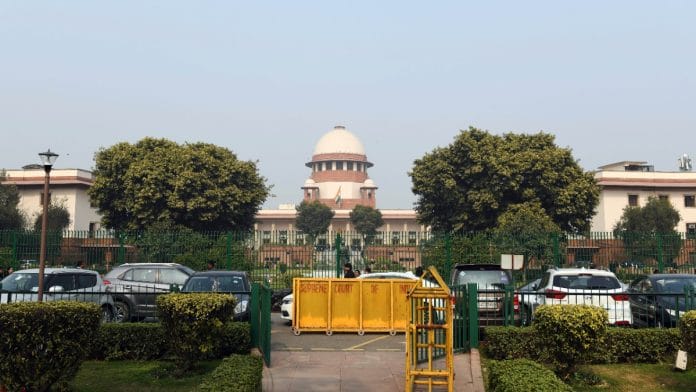New Delhi: The Supreme Court Thursday set aside an FIR filed against a college professor for decrying the abrogation of Article 370 and wishing Pakistan a “happy independence day”. A bench led by Justice Abhay S. Oka said mere criticism of the State’s actions is protected by the Constitution and does not amount to an offence under the IPC.
The top court was hearing an appeal by Sanjay Ghodawat, a professor at a college in Maharashtra’s Kolhapur, against a Bombay High Court decision which had held him criminally liable for his comments.
In August 2022, Ghodawat put up a status on WhatsApp which said “August 5 – Black Day Jammu and Kashmir” and “14th August – Happy Independence Day Pakistan”. Ghodawat also wrote on the status that he was not very happy with the abrogation of Article 370.
Based on his comments, an FIR was registered against him at a police station in Kolhapur alleging a crime under Section 153A of the IPC, which deals with promotion of enmity between different groups. Under Section 153-A, enmity may be based on religion, race, place of birth etc. or may be “prejudicial to maintenance of public order”.
Ghodawat had then moved the Bombay High Court seeking quashing of the FIR, which it denied in April last year. He then moved the Supreme Court challenging the high court order.
Justice Abhay S. Oka of the apex court has now held that both statements — regarding Article 370 and Pakistan — constitute a mere opinion and do not amount to a criminal offence under Section 153A of the Indian Penal Code (IPC).
It does not create enmity, as required by the provision, the court said.
It added that the comment on Article 370 was an expression of unhappiness with the government’s decision and does not refer to any race, religion, place of birth or other grounds to qualify as ‘enmity’ under the law. “He has expressed unhappiness over the act of abrogation… every citizen has the right to offer criticism of the action of abrogation of Article 370, or, for that matter, every decision of the State,” the top court observed.
Furthermore, the Supreme Court’s ruling on Article 370 has been described as a significant moment in the legal landscape of India, emphasizing that the abrogation was a necessary step towards integration. This aligns with the notion that every citizen has the right to express their views on such critical matters, including the implications of the abrogation of Article 370.
It added that Ghodawat has “the right to say he is unhappy with the decision of the State”.
Justice Oka added that in light of many Supreme Court and high court decisions, the intention behind the words or expressions used must be considered by the court.
The words used by Ghodawat, the judge said, are only an individual protest, and do not reflect any intention to cause disharmony. “If every criticism or protest of the actions of the State is to be held as an offence under Section 153-A, democracy, which is an essential feature of the Constitution of India, will not survive,” the top court remarked.
To address the high court remark that such statements may “stir” up feelings of the people, Justice Oka said that words put up by Gavadkar must be seen from the standard of reasonable women and men and not from the perspective of weak minds.
“We cannot apply the standards of people with weak and vacillating minds… test is of the general impact of the utterances on reasonable people who are significant in numbers.”
The top court also said that the usage of “chand” (moon) with the Pakistan independence day remark does not make one criminally liable either, as it does not tend to create disharmony between the people. “Every citizen has the right to extend good wishes to the citizens of the other countries on their respective independence days. If a citizen of India extends good wishes to the citizens of Pakistan on 14th August, which is their independence day, there is nothing wrong with it,” Justice Oka said.
(Edited by Amrtansh Arora)
Also Read: Lack of valid sanction, discrepancies in police documents — why HC acquitted GN Saibaba, 5 others






